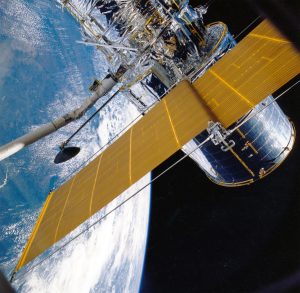Emerging technologies in aquaculture research: Revolutionizing the future of fish farming

Aquaculture, or the cultivation of aquatic organisms, has become a vital part of the global food industry. To enhance the efficiency and sustainability of this practice, aquaculture research is in constant evolution, leveraging emerging technologies to drive significant discoveries and improvements. Among the most notable innovations are artificial intelligence (AI), remote sensing, and other advanced technologies that are transforming the landscape of aquaculture research.
1. Artificial intelligence: A powerful ally in aquaculture management
Artificial intelligence has proven to be an invaluable tool in aquaculture research, providing analysis and decision-making capabilities that surpass human abilities. Machine learning algorithms can process large amounts of real-time data, from water quality parameters to fish behavior patterns.
An exemplary use case is the monitoring and control of fish health. AI can analyze underwater camera images to identify early signs of diseases, allowing for quick and precise intervention. Furthermore, automated feeding systems, driven by intelligent algorithms, optimize the quantity and timing of feeding, reducing waste and improving feed efficiency.
2. Remote sensing: Global surveillance for sustainable aquaculture
Remote sensing, through the use of satellites and drones, has revolutionized how aquaculture is monitored and managed globally. These technologies enable the collection of data on a large scale, providing detailed information on ocean health, water temperature, and nutrient distribution.
In practice, this means that fish farmers can make informed, real-time decisions. For instance, remote sensing data can alert to changes in oceanographic conditions that could impact production, allowing proactive adjustments in operations to minimize environmental risks and enhance sustainability.
3. IoT sensors and big data: Transforming data collection
Internet of Things (IoT) sensors have significantly improved data collection in aquaculture. From water quality sensors to tracking tags on fish, the information generated by these devices has become essential for understanding the aquatic environment and organism behavior.
Efficient management of these massive datasets is achieved through big data analytics. Advanced algorithms can identify patterns and correlations that would otherwise go unnoticed, providing valuable insights to optimize farming processes, improve productivity, and minimize environmental impacts.
4. Impact on decision-making and sustainability
The combined use of artificial intelligence, remote sensing, and IoT technologies has transformed not only research but also decision-making in aquaculture. The ability to anticipate problems, closely monitor organism health, and adjust operations in real-time has led to more efficient and sustainable management of aquaculture facilities.
Moreover, these technologies have contributed to reducing risks associated with aquaculture, enabling producers to make informed decisions to minimize disease spread, optimize resources, and meet environmental standards.
5. Conclusions and Future Perspectives
Emerging technologies are driving a revolution in aquaculture research, facilitating significant advances in the management, monitoring, and sustainability of operations. The combination of artificial intelligence, remote sensing, and IoT sensors has proven to be a successful formula for enhancing efficiency and addressing challenges associated with aquaculture.
As these technologies continue to evolve, new applications and improvements are expected to emerge, solidifying aquaculture as a smarter, more sustainable industry capable of feeding a growing global population. The future of aquaculture research will increasingly depend on technological innovation, paving the way for more efficient and environmentally respectful development in aquatic food production.
This article is presented by Aquanetwork, your reliable source for job opportunities in the aquaculture industry. Connect with employers and passionate professionals at Aquanetwork.